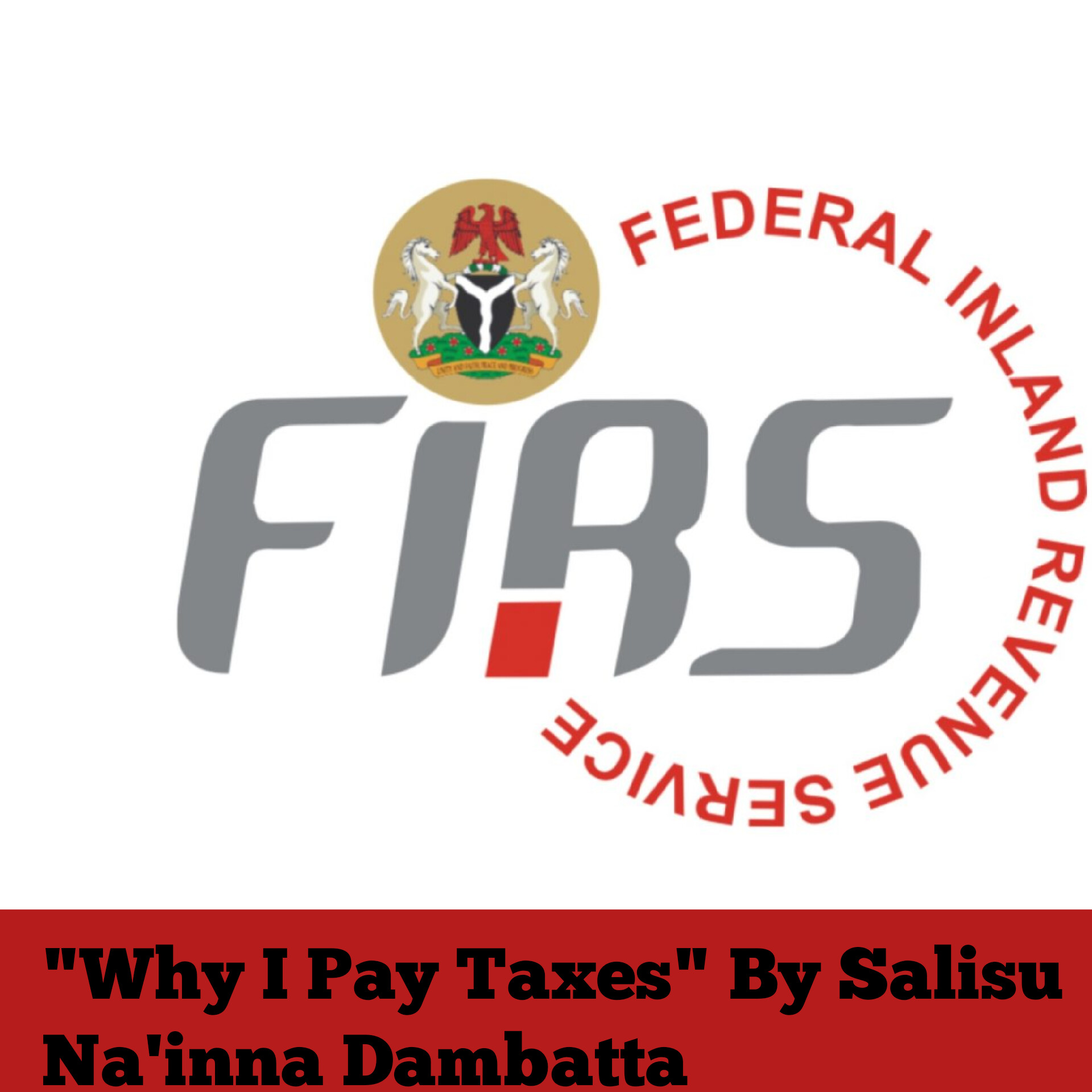“Why I pay taxes”
By Salisu Na’inna Dambatta
“As a villager, I loathed paying taxes, or what they called revenue, in our weekly open air market,” said Maitabo, the livestock trader who is now an industrialist in the big city where he established factories that turned out a basket of consumer goods, including polished rice.
He said he spent the first 40 years of his life in his native village without electricity. There was no smooth, all-season motorable road to his village either. The only school in the district was in Alkarya, the district headquarters of his Karkara collection of hamlets, tiny villages, and homesteads.
Maitabo said he previously viewed paying the community tax and cattle tax to the local leaders as an unnecessary dishing money out to big men who dress nicely, ride bicycles, even motor cycles and build cemented houses with roofs made of shiny corrugated iron sheets.
However, as his livestock trade expanded and the necessity for Maitabo to hire articulated trailers to convey his wares from the big livestock markets where he buys them in hundreds to far-flung consumption centres of Kano, Ibadan, Warri, Abuja, Benin, Uyo, Yenagoa, Port Harcourt and Okigwe near Umuahia, he appreciated that the wide, smooth and tarred highways plied by the trailers were important facilitators for his flourishing lucrative trade.
He also realised that the trailers conveying his livestock travel through thick forests where security personnel were stationed to protect travellers from marauders. The trailers were driven on bridges built by the government to cross both big rivers and streams: the days of using risky ferries to cross the rivers were over.
As an industrialist who graduated from livestock trade and living in a rural Nigeria 50 years ago, he is now face to face with the importance and benefits of paying taxes. And he no longer loathes paying taxes as he did previously. He nowadays encourages other business owners and everyone who will listen to him to pay taxes as and when due.
His favourite justification for his willingness to pay taxes was the improvement he noticed to the wellbeing of people in his village during a visit. The authorities have provided a laterite road linking his village to other towns; a windmill that draws potable water from a deep well for his community; a dispensary that meets the health care needs of a cluster of villages including his home village, and the most wonderful of all, the electricity that was wired to the village by the Rural Electrification Authority.
Maitabo will tell his listeners that it was long after he enjoyed various government services that it dawned on him that the livestock tax he paid and the flat tax paid by all male adults in his village, contributed to the pool of money spent in providing those services in his and other neighbouring villages.
Now as a dweller in a city, the owner of manufacturing plants and a fleet of trailers that bring raw materials to his factories and evacuate manufactured goods from there, he realises that the constant electricity supplied to his factories and the smooth roads used by his articulated trucks were emplaced by government using the very taxes he previously loathed to pay.
He now discourages tax evasion; shun false tax entries and avoids quarrels with tax officials. Maitabo believes as the World Bank does in a Subnational Studies on ease of doing business that, taxpayers and businesses are interested in what they get for their taxes: quality infrastructure including good roads, reliable railway network, functional aviation facilities, efficient sea ports, continuous supply of electricity and telecommunication connectivity, which are all vital for the sound functioning of an economy.
A healthy workforce enhances economic competitiveness and productivity. This makes governments invests in the provision of health services. Government also spends on imparting relevant skills to improve the efficiency of workers. It provides tertiary education facilities such as the 37 Federal Polytechnics, 43 Federal Universities and 27 Federal Colleges of Education where top-level human capital is nurtured to support the economy through technical innovations.
Maitabo often explains to his listeners that although the government in Nigeria charges excise, import and export duties and collects petroleum profit tax to raise revenue to finance the operations of the security forces namely the Nigeria Police Force, the Department of State Services, the Nigerian Army, Navy, Air Force, and the Civil Defense, he noted that the bread and tea millions of Nigerians buy daily, complete with fried eggs and the meals they enjoy in countless eateries and open air restaurants, including the peppersoup, are not taxed by the government.
Maitabo is always at his best telling people who listen to him why he pays taxes. He points out that revenues from taxes are used to compensate public servants who provide essential services as ambulance drivers, fire fighters, nurses in healthcare centres and air traffic controllers who contribute to safe aviation in the country.
He narrates correctly that Nigerians who travel anywhere by road, sea and air, inevitably drive on government-provided roads, use safe sea lanes cleared by the country’s maritime authority and fly out or land at beautiful airports built by government–using money from taxes.
Maitabo admits that he benefits immensely from the services provided by the government which it pays for with money generated through taxation, and wished that those services continue to improve sustainably, often saying, “That is why I pay taxes.”


